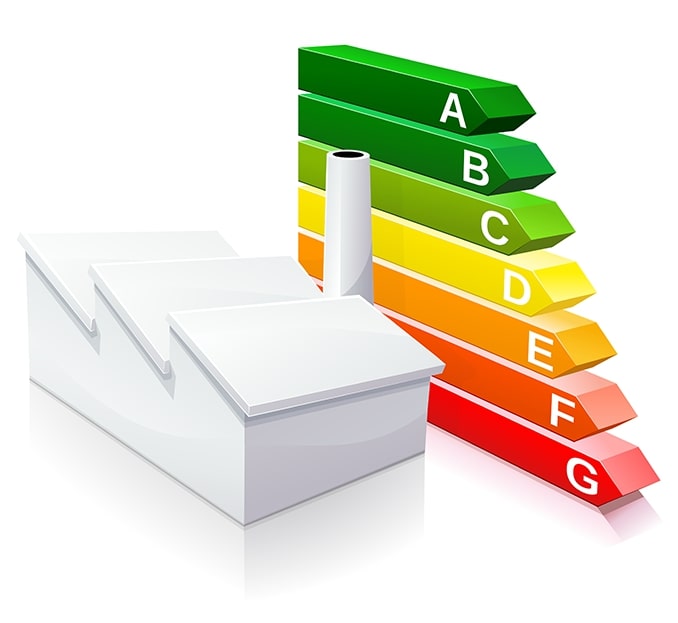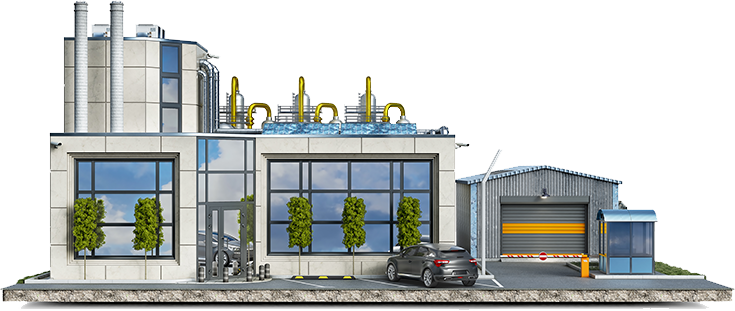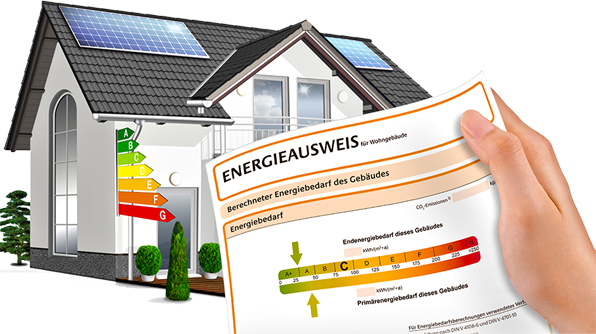00352 - 27 28 15 38 | mycon@mycon.lu
Commercial buildings
Commercial buildings

Residential buildings are those in which more than 90% of the energy reference area is used as living space (alternatively, the "cadastre vertical" of the "règlement ministériel du 21/01/2010 Mémorial A n°9" can be used). The ratio of living space to non-residential space is thus decisive for the classification of the building as residential or non-residential.
When is an energy passport required?
The energy pass is part of every building application at
- New construction,
- Extension or transformation of an existing building
- Existing buildings and old buildings
- Change of ownership (sale, inheritance, donation, auction, etc.)
- Change of tenant (new tenancy, leasing, etc.).
The energy pass is also mandatory for substantial renovations that do not require building permission.
A few exceptions are exempt from the Grand Ducal Regulation and thus also from the energy pass obligation:
- Agricultural buildings with low energy demand (heating < 12°C and no air conditioning)
- Building with a large and permanent opening to the outside
- Temporarily constructed buildings (use < 2 years),
- Places of worship and religious institutions
- independent non-residential buildings with an energy reference area of less than 50 m².

Energy pass = demand pass
There are two procedures for calculating non-residential energy passports.
- For new buildings, the energy pass is issued on the basis of the calculated energy requirement.
- For all other non-residential buildings, the Energy Performance Certificate is drawn up on the basis of measured consumption values (this Energy Performance Certificate is also called the Consumption Passport).
Regardless of whether it is a consumption pass or a demand pass:
- The requirements for non-residential buildings, according to which the verification of the building's energy performance is carried out, are checked.
- For the project, the engineer conducts the energetic balance in accordance with the Energy Saving Ordinance LuxEeb and issues the required energy certificates in accordance with LuxEeb.
- If the client also wishes to apply for financial supportthe civil engineer will also issue the required energy certificates.
- The civil engineer shall provide the necessary evidence for summer thermal insulation for non-residential buildings. Room by room or zone by zone, also for the cooled zones of the office building.
- If prescribed, the primary energy demand for the cooling system and the cooling function of a ventilation and air-conditioning system is also balanced.
- Ideas for thermal component activation (concrete core activation)which use the building mass for temperature control. Especially in new buildings a sensible investment in the long term.

Mixed-use buildings (residential and non-residential)
If less than 90% of the energy reference area is used for residential purposes, an additional energy certificate (Residential Building Ordinance) must be issued for the area used for residential purposes. This is often the case for apartment buildings, residences and residential buildings that were not previously counted as residential buildings.
The energy certificates of non-residential buildings are always issued for the entire building.
The certification of the energy efficiency of functional buildings takes into account the complete building technology such as lighting, ventilation, heating, air conditioning, air humidifier and dehumidifier and therefore requires more extensive analyses.

